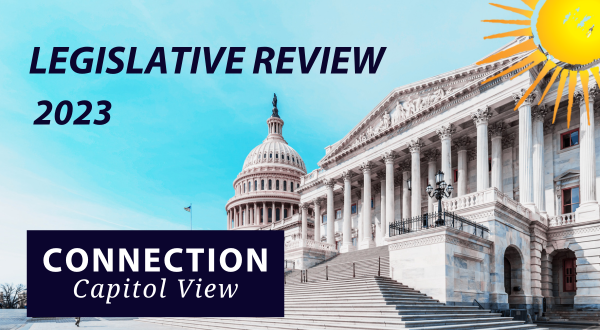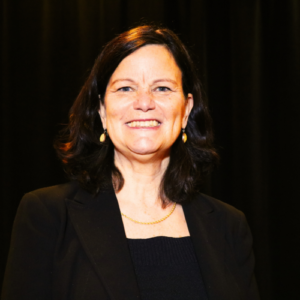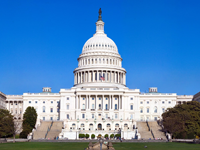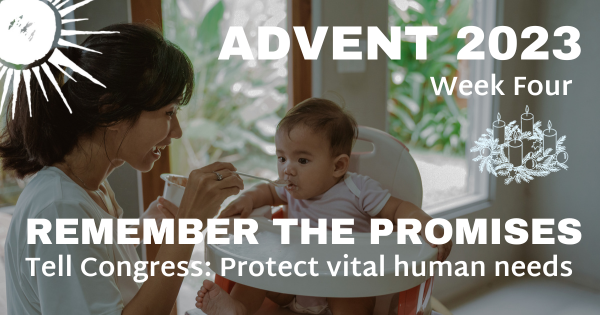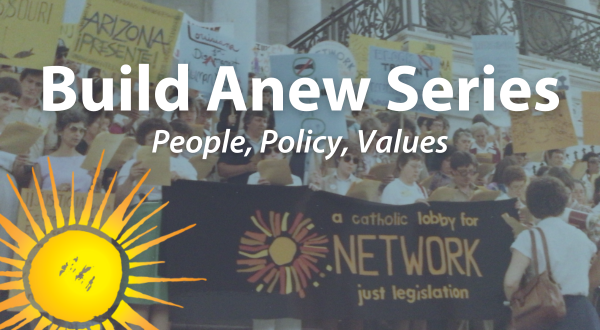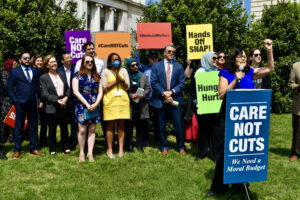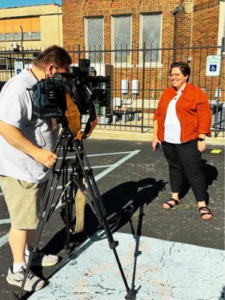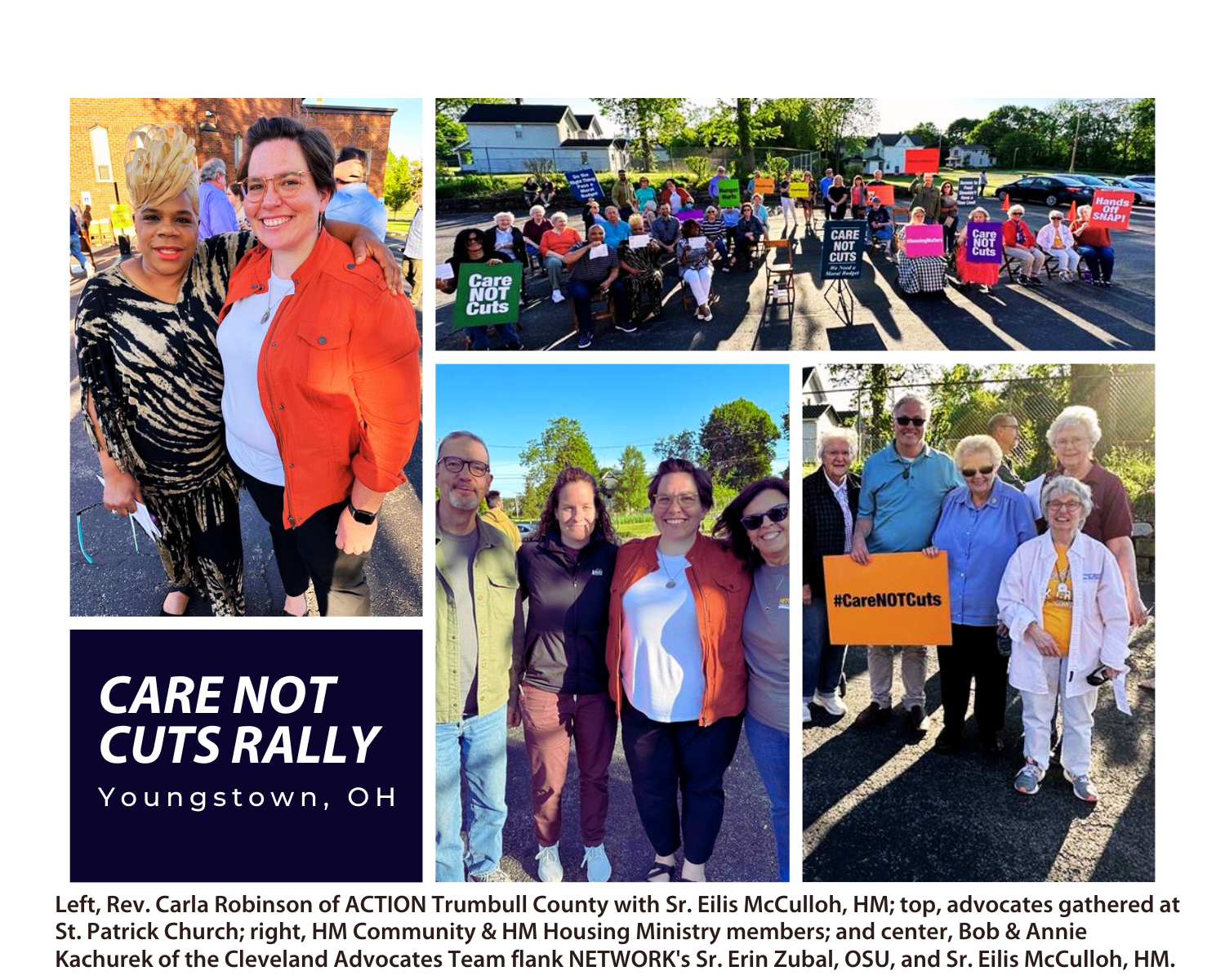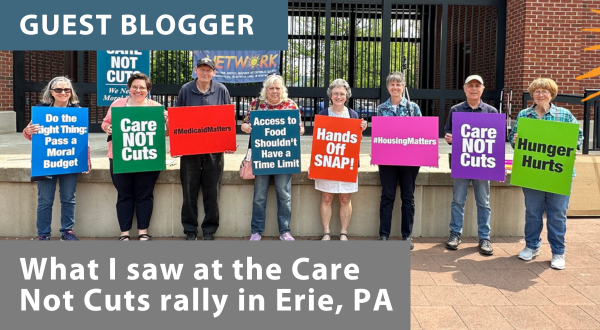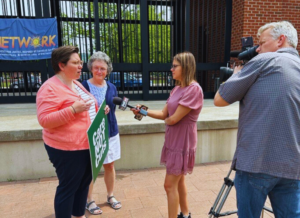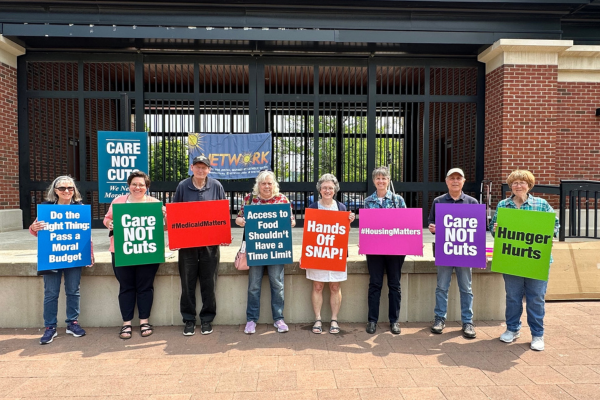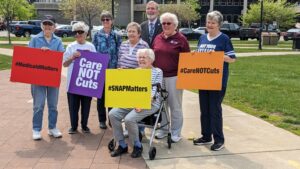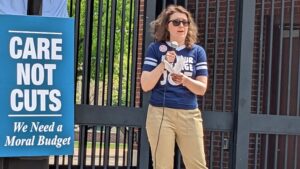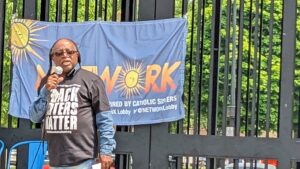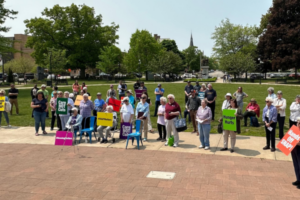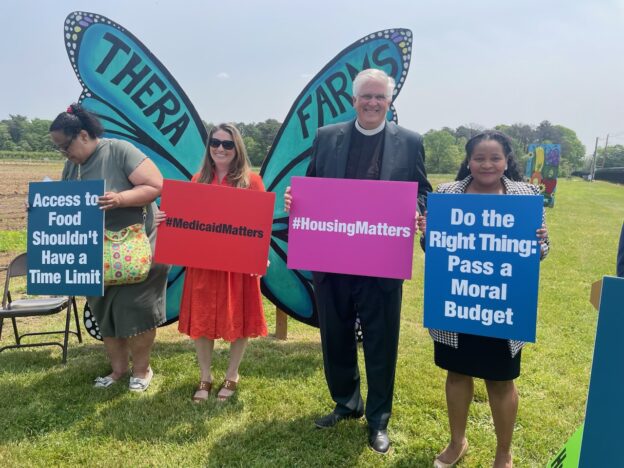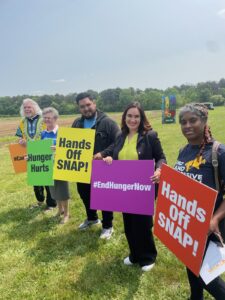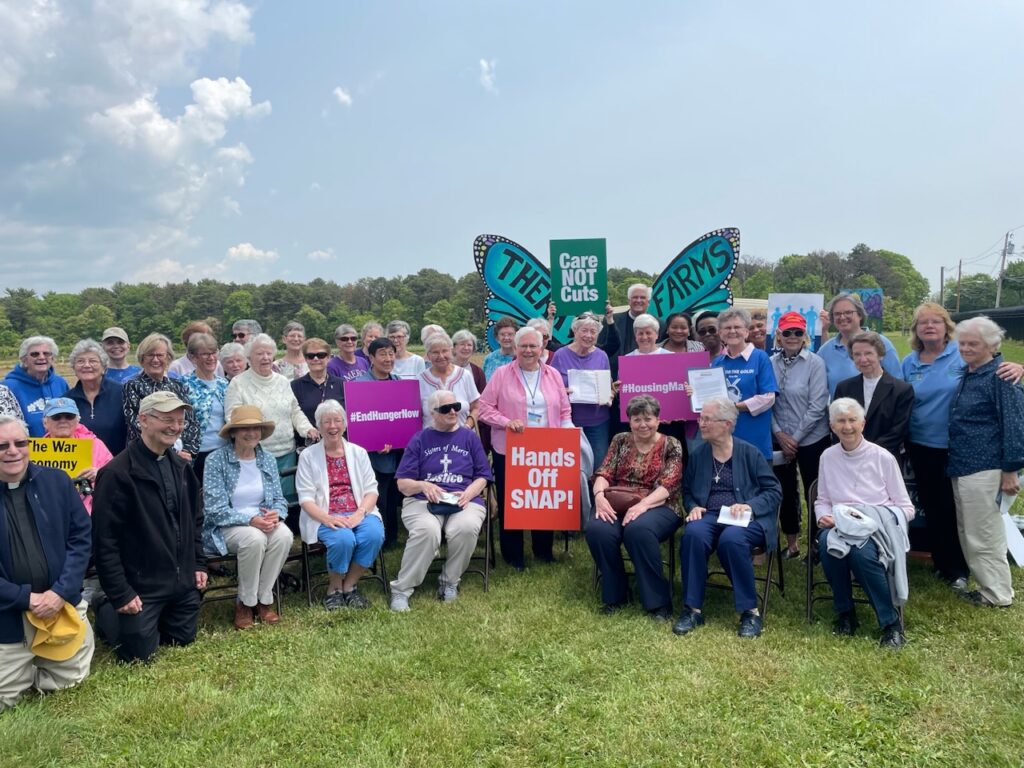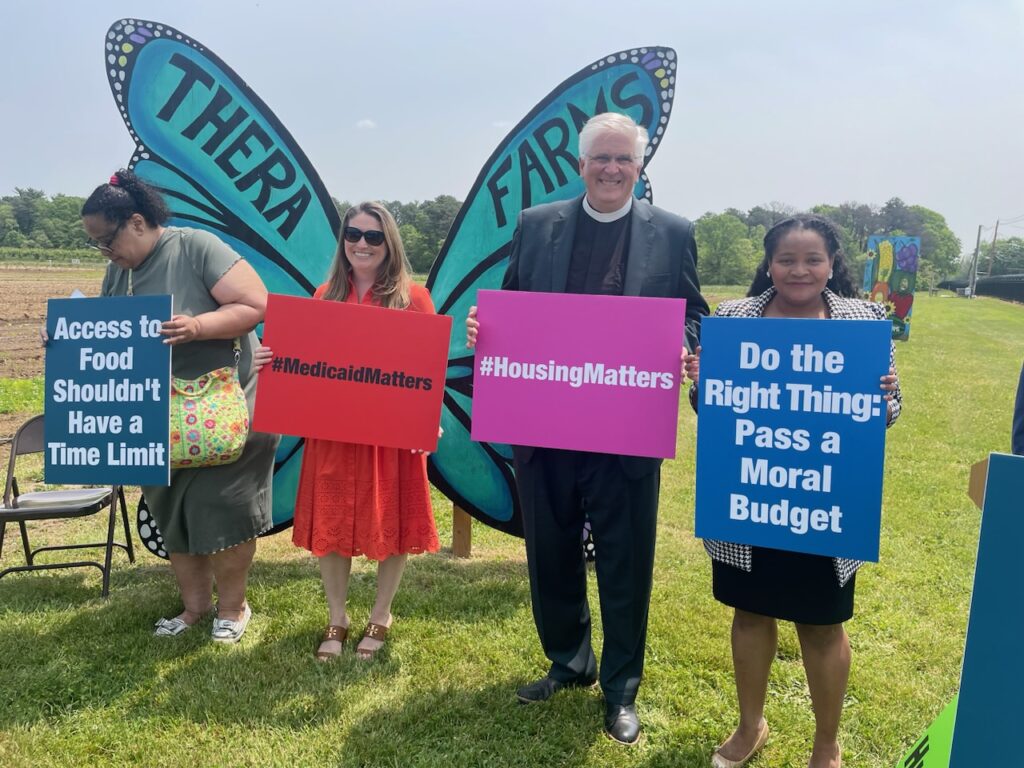Hey, Congress: Care is What Really Matters
Deliberate Distractions Must Not Derail Our Efforts to Protect Health Coverage for Millions of People
Jackalope Labbe
October 29, 2025
Every week brings a new wave of confusion regarding health care from the Trump administration. One day, it’s HHS Secretary Robert F. Kennedy Jr. making unfounded claims about over-the-counter painkillers and autism. The next, it’s open skepticism about childhood vaccination schedules. At the same time, the Department of Health and Human Services touts that most people don’t need regular care. The chaos this creates serves a purpose. It is meant to dominate attention and drown out the real story.
While everyone argues about medical conspiracies, some lawmakers in Congress have worked to dismantle and defund major parts of the Affordable Care Act (ACA). When public focus is fixed on fringe controversies, it becomes easier for lawmakers to push through such a devastating policy change. While the media churns out headline after headline on the newest baseless claims coming from members of the current administration, Congress is preparing to let the ACA’s enhanced premium tax credits expire.
The ACA’s premium tax credit lowered the cost of health care for millions of people by capping how much we pay for coverage on the ACA marketplace based on our income, making premiums either free or affordable for millions of low- and middle-income families. It is the only way millions of people in the U.S. can afford health care. Without this, insurance companies are surging their rates, leaving us with more expensive, less effective health care.
Since being introduced, the ACA premium tax credits have transformed access to health care in our country. Enrollment in ACA marketplace coverage hit record highs in early 2025, driving the uninsured rate to its lowest level ever. Today, more than 24 million people rely on these tax credits to afford their insurance. An estimated 4.8 million people will lose their health coverage entirely because they can no longer afford it without the premium tax credits.
These aren’t abstract numbers. They represent parents choosing between rent and insulin, young adults aging out of their parents’ plan with nowhere to turn, and rural hospitals forced to close their doors as patient numbers drop.
As frustrating as this political theater feels, anger alone won’t change minds. Our community members echoing misinformation about vaccines or Medicaid aren’t doing so out of hostility. They’re scared. Years of rising costs, confusing bureaucracy, and inaccessible care have left so many feeling alienated. When leaders exploit that fear, it breeds mistrust, making people more vulnerable to conspiracy theories that tell us the system was never meant to help anyway.
If we respond with outrage, we alienate those who could join with us. Empathy does not mean agreeing with misinformation; it means understanding the concerns that fuel it. When we center conversations around shared experiences, we remind each other that health care is a universal issue. Compassion is not weakness; it’s a strategy for rebuilding community.
Much of the misinformation flooding social media targets one of the most vulnerable emotions in the country, a mother’s fear. False claims about medications during pregnancy or routine childhood vaccines being dangerous are designed to strike where the instinct to protect intersects with trust in science. These stories circulate because they sound caring, reframing misinformation as maternal caution rather than political manipulation. This strategy is deliberate.
When fear takes hold, it erodes trust in the healthcare systems families depend on. Instead of feeling supported by doctors and public health agencies, parents feel suspicious of them. This cycle of fear doesn’t just isolate families; it weakens collective confidence in public health, making it easier for lawmakers to justify cuts to the programs that keep those same families healthy.
This government shutdown is not just another budget debate; it’s a turning point. The distractions, conspiracy theories, culture wars, and partisan gridlock are meant to make us forget where we need to focus: keeping health care accessible. This means protecting the ACA, including premium tax credits.
Every phone call to a representative, every conversation educating each other, every show of solidarity helps. The Trump administration may count on division and fatigue, but we can choose to stay centered on what matters. We cannot fall to distrust in uncertain times. We must strive for clarity. While some government officials try to use confusion to take away our care, we can refocus our attention to saving it.
Jackalope Labbe is a social work and history major at College of Our Lady of the Elms in Chicopee, MA and a Sr. Carol Coston Fellow in NETWORK’s Young Advocates Leadership Lab (Y.A.L.L).







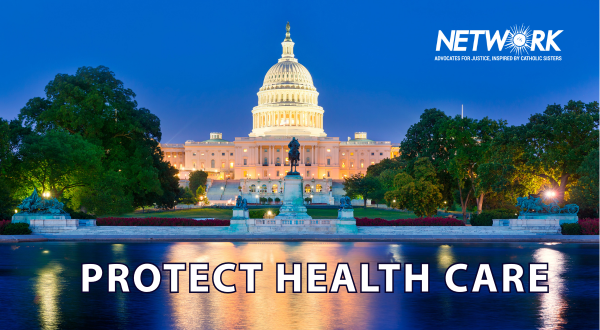




 Big corporations made $2.5 trillion in profits in 2021 alone, their most profitable year since 1950—and corporate food executives still raised prices.
Big corporations made $2.5 trillion in profits in 2021 alone, their most profitable year since 1950—and corporate food executives still raised prices.
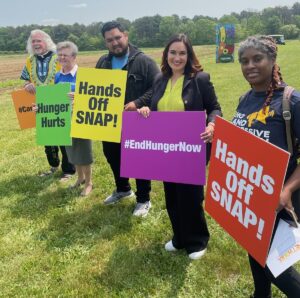
 And then, of course,
And then, of course, 